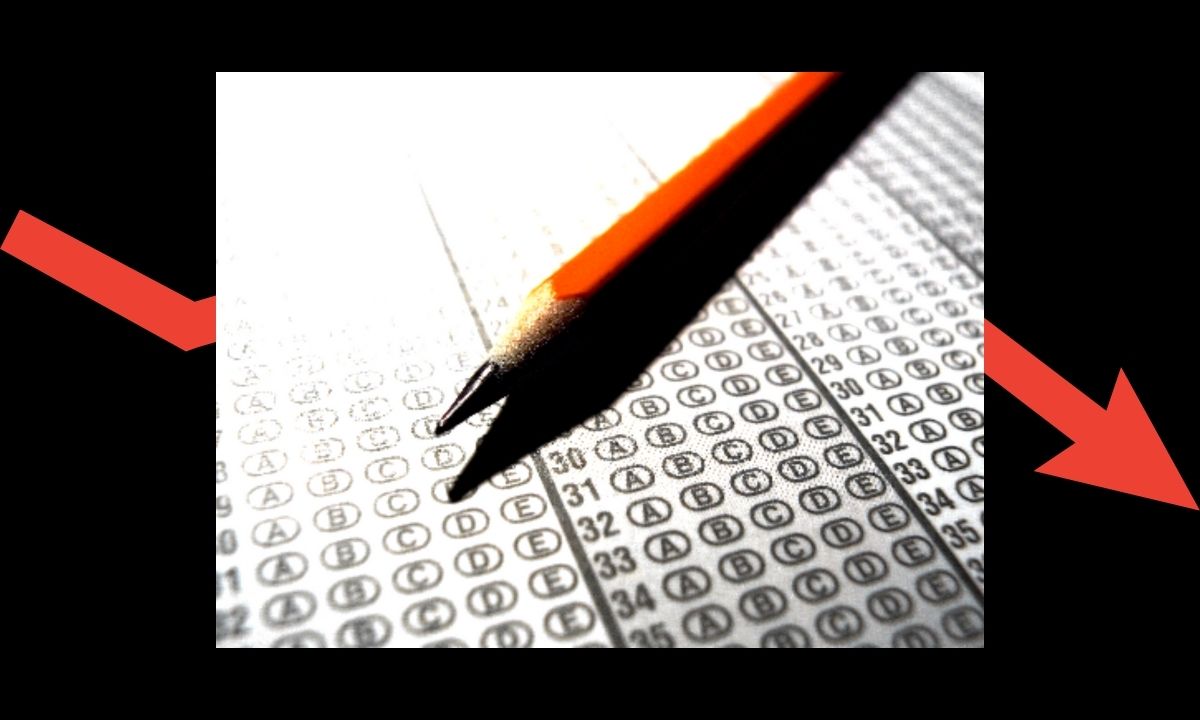Four Things to Know About Lowest ACT Scores in More Than Three Decades
New ACT data points to bleak reality for marginalized students — particularly Black students who scored the lowest in nearly every subject.

Get stories like this delivered straight to your inbox. Sign up for The 74 Newsletter
This year’s high school students had the worst ACT test scores in more than three decades — with the lowest scores among Black students.
The average ACT test score was 19.5 out of 36 from the class of 2023, compared to 19.8 last year — the sixth consecutive drop, according to the nonprofit organization that administers the test.
New demographic data shows Black students scored 3.5 points below this year’s average, continuing the growing trend of historically marginalized students being unprepared for college-level courses.
“These systemic problems require sustained action and support at the policy level,” said ACT chief executive officer Janet Godwin in a statement.
“The hard truth is that we are not doing enough to ensure that graduates are truly ready for postsecondary success in college and career,” she added.
Here are four key takeaways from the ACT test score report:
1. Black students had the lowest ACT test scores in nearly every category.

Black students had an overall ACT test score of 16 out of 36.
In English, Black students were more than three points below the average scores of 18.6 for English, 19 for math, 20.1 for reading and 19.6 for science.
American Indian and Alaska Native, Native Hawaiian and Pacific Islander and Latino students also scored below average in every category.
Stephen Barker, director of communications at OneGoal, said the scores point to the systemic barriers minority and first-generation students face as they apply to college.
“There isn’t the generational support or knowledge to push kids and prepare them to take these tests,” Barker said. “Kids are throwing their hands in the air and saying ‘I’m gonna take it but I’m not ready’ and it’s stressful for them and bears out in these numbers.”
2. Native Hawaiian and Pacific Islander students experienced the greatest ACT test score declines in the last five years.

Native Hawaiian and Pacific Islander students saw the largest overall ACT test score decline in the last five years, scoring 16.3 out of 36 — a 1.6 point decrease compared to 2019.
The decline was followed by Latino and white students who decreased 1.3 and 1.1 points, respectively.
“What you don’t see in these numbers are all of the environmental challenges that are stacked on,” Barker said, adding how students, often women, are caretaking for families or working multiple jobs.
“We’re just throwing tests at kids and are surprised when it comes time to enroll them and they aren’t ready,” he said.
3. Male students scored higher in math and science compared to females.

Male students scored 19.4 in math and 19.8 in science compared to female students scoring 18.8 and 19.6, respectively — a difference of 0.6 and 0.2 points.
Female students scored 19.2 in English and 20.6 in reading compared to male students scoring 18.2 and 19.7 — a difference of 1 and 0.9 points.
“I can tell you that I definitely see this disparity,” Medha Kukkalli, a first-year student at the University of Houston, told The 74.
Kukkalli, who’s currently studying human development and family studies, said most of her classmates are women and her peers in STEM courses are predominantly men.
4. Fewer students have taken the ACT test in the last five years.

Nearly 1.4 million students took the ACT test compared to last year — an increase of 40,000 students.
But there’s been a dramatic decline from the nearly 1.8 million students who took the test in 2019 — a decrease of about 400,000 students.
This comes as several universities have made standardized admissions tests optional, including the University of California system that doesn’t even consider ACT or SAT scores.
Kukkalli opted out of taking the ACT test because she said it wouldn’t reflect how successful she could be in college.
“It’s more about time management skills, having resilience, support systems and mental fortitude rather than solely whether you have a high ACT score,” Kukkalli said.
Barker said Kukkalli’s thinking is not surprising as the ACT and SAT tests experience a “brand crisis,” with the number of students taking standardized tests declining.
Get stories like these delivered straight to your inbox. Sign up for The 74 Newsletter

;)
